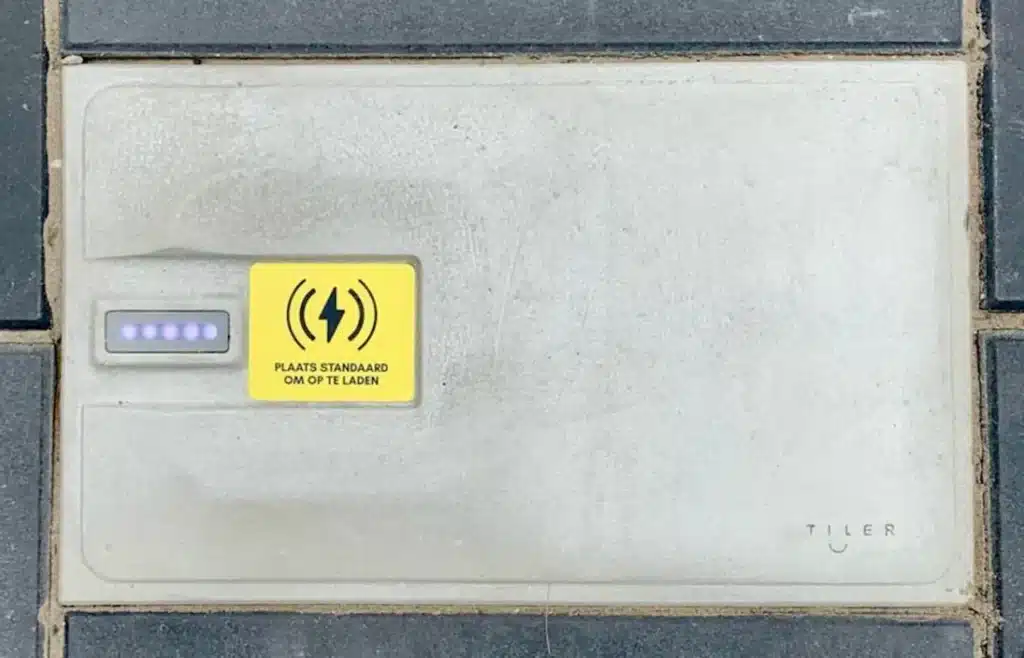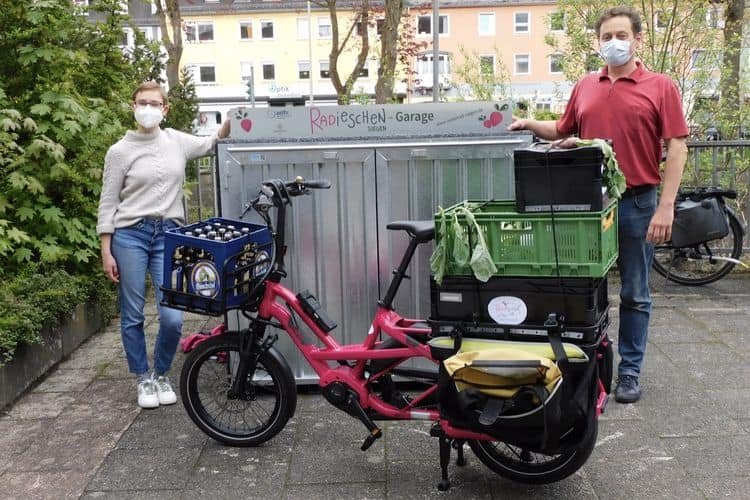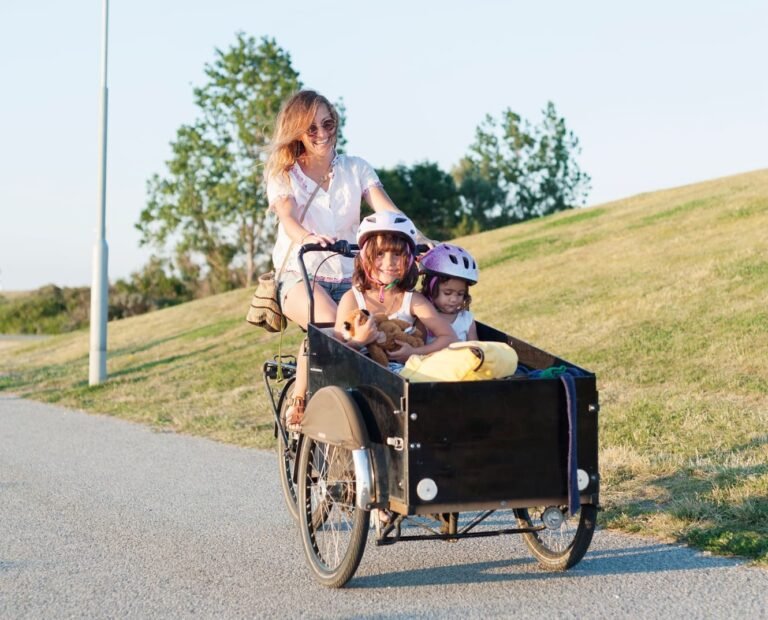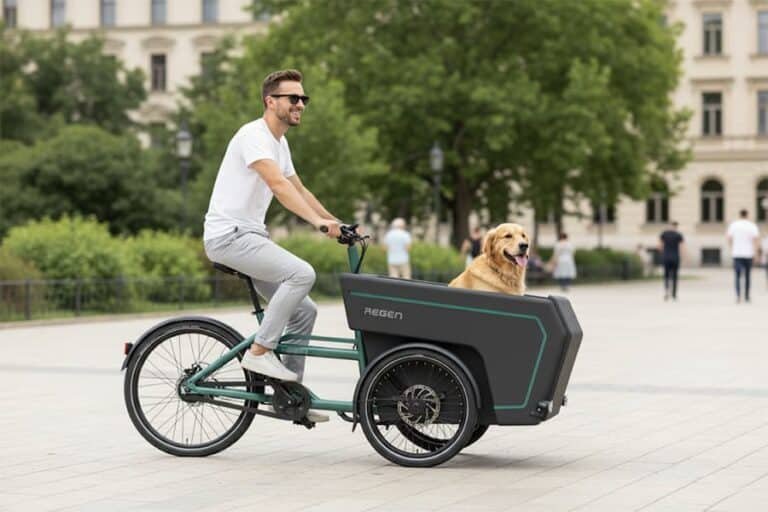Overview: Seamless Charging Meets Real-World Proof
TILER, a Dutch clean‑tech startup emerging from TU Delft, is redefining e‑bike charging. The firm’s TILER Compact system (a charging tile plus a smart kickstand) enables truly wireless charging—riders simply park their e‑bike over the tile and drop the kickstand, triggering an automatic inductive charge to the battery, no cables required .
Backed by over 200 installations across cities like Munich, Rotterdam, Galway, and Ireland, these charging points have collectively powered more than 300,000 km of riding in real‑world trials .
How It Works: Tile + Kickstand = Induction
The system consists of:
- A modular charging pad or “Tile” (~260 × 245 × 15 mm, ~2 kg, IP67 waterproof), connected to a standard wall outlet or permanently installed in-ground for a clean look .
- A Charging Kickstand or Cargo Cube, hard-wired into the bike’s battery via a discreet adapter cable linked to major e‑bike systems like Bosch, Yamaha, Bafang, Shimano, and GoBao .
When you park and deploy the kickstand onto the Tile, power transfers via magnetic induction. Charging yields 150 W output, enough to fully charge a 36 V, 500 Wh battery in about 3.5 hours, on par with traditional wired chargers . Efficiency remains above 85–90%, and the system supports multiple tiles from a single 230 V / 16 A outlet (up to 24 tiles) .
Proven in the Field: Fleet Savings & Operational Wins
In one test within a fleet of 20 cargo bikes in Munich, operators saved around €1,250 per month by avoiding manual battery swaps, and saw battery damage drop by 20% . Overall, TILER estimates e‑bike fleet managers can cut operational costs by up to 37% while extending battery lifespan up to 300% through its smart charging management system .
The system intelligently optimises charging cycles—slower overnight charging, automatic pausing at 80% to protect cells, and remote diagnostics via cloud integration and fleet‑management APIs .

Market Launch: From Fleet Pilot to Consumer Ready
Originally built for mobility service providers and hotel/hospitality fleets, TILER is now targeting prosumer and consumer markets with the new TILER Compact kit. Pre-orders began shortly after its showcase at Eurobike 2025, with shipping slated for summer 2026 in markets like Spain, the UK, and the Netherlands .
- Retail price: ~€225–€250 per tile + kickstand bundle
- Deposit: €29 refundable pre-order deposit
- Production & certification goal: €300K equity raise on Crowdcube to fund CE-certification processes and scale manufacturing in Europe
With over €130,000 already raised (and €2.9M secured including grants), the crowdfunding campaign is nearing its close, offering early investors shares in TILER’s next chapter .
Why It Matters: Smarter Charging, Cleaner Cities
As e‑bike adoption surges, public and private fleets face ongoing challenges in battery maintenance, cable clutter, and user frustration. TILER’s solution addresses these directly by:
- Eliminating cable wear & theft
- Ensuring bikes are charged whenever parked
- Providing modular infrastructure that fits urban pavements or indoor hubs
- Enabling scalable deployment—from home installations to fleet stations, by daisy-chaining up to 24 Tiles on one outlet .
Founders from TU Delft highlight TILER’s mission: a universal, sustainable charging architecture underlying future micro‑mobility, eventually supporting e‑scooters, e‑mopeds, and cargo bikes alike .
Technical Snapshot
| Feature | Details |
|---|---|
| Power output | 150 W wireless charging |
| Battery compatibility | 36 V / 500 Wh (typical), full charge in ~3.5 hours |
| Efficiency | ≥85–90%, comparable to wired charging |
| Tile size / Weight | 260×245×15 mm, approx. 2 kg, IP67 rated |
| Placement tolerance | ~50 mm fore/aft, 100 mm sideways on tile |
| Chain capacity | Supports up to 24 Tiles from one 230 V outlet |
| Compatibility | ~75–80% of e‑bike systems (Bosch, Yamaha, Bafang, etc.) |
The Road Ahead
With pre-orders open and distribution geared toward EU consumers and fleet operators, TILER is positioning itself for broader global reach—leveraging grant funding, design partners like EIT Urban Mobility, and pilot partnerships in cities across Western Europe . The startup’s next steps include certification, scaling manufacturing in Europe, and extending product lines to cargo and micromobility vehicles beyond e‑bikes .






